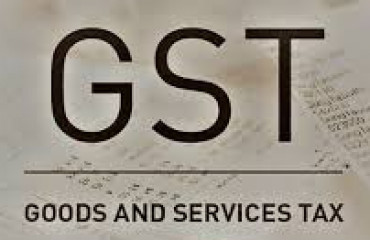
The Goods and Services Tax (GST) Council will on Saturday consider raising the monetary threshold for launching prosecution for tax evasion, two people familiar with the Centre-state discussions said, as the federal indirect tax body aims to improve business climate and ease of doing business.
The Goods and Services Tax (GST) Council will on Saturday consider raising the monetary threshold for launching prosecution for tax evasion, two people familiar with the Centre-state discussions said, as the federal indirect tax body aims to improve business climate and ease of doing business.
The council is considering amending the penalty provisions for tax evasion, wrongful use of tax credits, and other offences. Currently, tax evasion of ₹1-2 crore attracts a jail term of up to one year and that for ₹2-5 crore up to three years, under Section 132 of the Central GST Act and corresponding state laws. The idea is to raise this monetary threshold for initiating prosecution in these cases, said one of the two people cited above. A third threshold specified in the law, up to five years of imprisonment and fine where the tax evasion is ₹5 crore or more, is unlikely to be changed, the person said.
These penalty provisions cover a wide ambit of wrongful acts, including sales without invoices, issuing invoices without the supply of goods and services, collecting tax but failing to deposit to the government within three months, falsification of documents and obstructing officials in discharging their duties.
Experts said there should be an overall increase in the monetary threshold for prosecution. "The current monetary threshold is very low, which also makes it difficult for the administration to handle cases. Therefore, the threshold should be raised significantly. Prosecutions should be launched only in very large cases, and in others, the monetary penalty should do," Abhishek Jain, a partner for indirect tax at KPMG in India.
Raising the monetary threshold for prosecution is part of policymakers' efforts to improve the business climate at a time central and state governments are trying to attract fresh investments into the economy from domestic and global investors. Separately, the council will also take up proposals on Saturday to decriminalize minor or procedural offences, which is also expected to improve the overall business climate, the person said. These are the ones where an intention to evade tax is not present.
Besides improving the ease of doing business, decriminalizing minor offences and raising the monetary limit for other offences for prosecution will reduce the burden on the judiciary, according to Ravi Raghavan, a senior partner at Lakshmikumaran and Sridharan Attorneys. "The industry has been insisting on increasing the threshold limit to ₹20 crore for allegations involving tax evasion, misuse of input tax credit or fraudulently obtained refund and for the decriminalization of all other offences," said Raghavan.
Decriminalizing the legal framework is a key priority for the central government, too. Commerce minister Piyush Goyal had said in September that the department for the promotion of industry and internal trade is working on a new bill to decriminalize several laws in one go which will end harassment faced by businesses and reduce the compliance burden. Earlier, the Centre decriminalized more than 60 penal provisions in the Companies Act in two rounds of legislative amendments in 2018 and 2020 to improve the ease of doing business and reduce litigation.
The Central Board of Indirect Taxes and Customs (CBIC) in September issued a series of instructions to field officers to ensure that prosecution is not launched indiscriminately against all directors of a public limited company for tax evasion and that it should be limited only to persons who oversaw its day-to-day operations and have taken an active part in the offence or have connived in it. In August, it instructed officers that decisions for prosecution are taken on a case-to-case basis weighing the nature and gravity of the offence, the extent of tax evaded and the quality of evidence. The central tax authority also raised the monetary threshold for prosecution and arrest for smuggling to ₹50 lakh from ₹20 lakh. In the case of commercial fraud, the threshold has been doubled to ₹2 crore.
